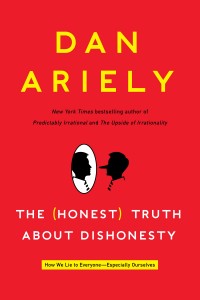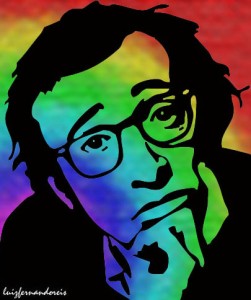
In Tyson Schoeber’s class at Nootka Elementary School in Vancouver, 15 fourth through seventh graders struggle to read, write or do math at a level near that of their peers in other classes. Ten-year-olds have entered Schoeber’s program, called THRIVE, virtually unable to read independently (see “One Man’s Mission to Save Struggling Students”). Yet Schoeber [...]
Keep reading »
The July/August issue of Scientific American Mind made its debut online late last week. Here I divulge some of the more surprising and useful lessons from its pages. Dozing Dangerously Sleepwalking is one of the strangest phenomena I have ever witnessed. Despite its name, it doesn’t resemble any other kind of sleep I’ve seen. To [...]
Keep reading »
June 8th, 2012 |
![]() 17
17

Think donning an Armani knockoff or phony Prada only hurts the fashion industry? Take another look in the mirror By Dan Ariely* This e-book chapter is excerpted from The (Honest) Truth about Dishonesty, by Dan Ariely (HarperCollins Publishers, 2012). Used with permission. Let me tell you the story of my debut into the world of [...]
Keep reading »
May 11th, 2012 |
![]() 17
17

Part 5 of a 5-part series By Allen Frances* When the third edition of psychiatry’s manual of mental illness, the DSM-III, was published 30 years ago, there was great optimism it would soon be the willing victim of its own success, achieving a kind of planned obsolescence. Surely, the combining of a reasonably reliable system [...]
Keep reading »
May 10th, 2012 |
![]() 3
3

Part 4 of a series Depression and anxiety are like a pair of warring siblings. Both are disruptive and trying. They don’t want each other’s company, but are stuck together by virtue of the same parentage. Depression, after all, is often a product of rumination, the grating mental do-overs of ugly past events, usually with [...]
Keep reading »
May 9th, 2012 |
![]() 11
11

By Edward Shorter* Part 3 in a series One might liken the latest draft of psychiatry’s new diagnostic manual, the DSM-5, to a bowl of spaghetti. Hanging over the side are the marginal diagnoses of psychiatry, such as attention deficit hyperactivity disorder and autism, important for certain subpopulations but not central to the discipline. At [...]
Keep reading »
May 8th, 2012 |
![]() 8
8

By Ferris Jabr* Part 2 of a series In the offices of psychiatrists and psychologists across the country you can find a rather hefty tome called the Diagnostic and Statistical Manual for Mental Disorders (DSM). The current edition of the DSM, the DSM-IV, is something like a field guide to mental disorders: the book pairs [...]
Keep reading »
May 7th, 2012 |
![]() 8
8

We will soon find ourselves plagued by new forms of distress. No, it’s not the economy. It’s not that we are all becoming socially isolated because of Facebook (though it’s possible we are). Rather, doctors are about to redefine what it means to be mentally ill. A select clique of psychiatrists has been at work [...]
Keep reading »
April 24th, 2012 |
![]() 2
2

Guest Blog by Leonard Mlodinow* One advantage of belonging to a cohesive society in which people help each other is that the group is often better equipped than a set of individuals to deal with threats from the outside. People intuitively realize there is strength in numbers, and take comfort in the company of others, [...]
Keep reading »
April 12th, 2012 |
![]() 23
23

The May/June issue of Scientific American Mind makes its online debut today. As usual, it contains an array of delicacies to sate your curiosity about people. Here are three mouth-watering morsels of brain food from its pages. Knowing Ourselves. How we see ourselves—physically, that is–can play a significant role in our lives. Our body image [...]
Keep reading »